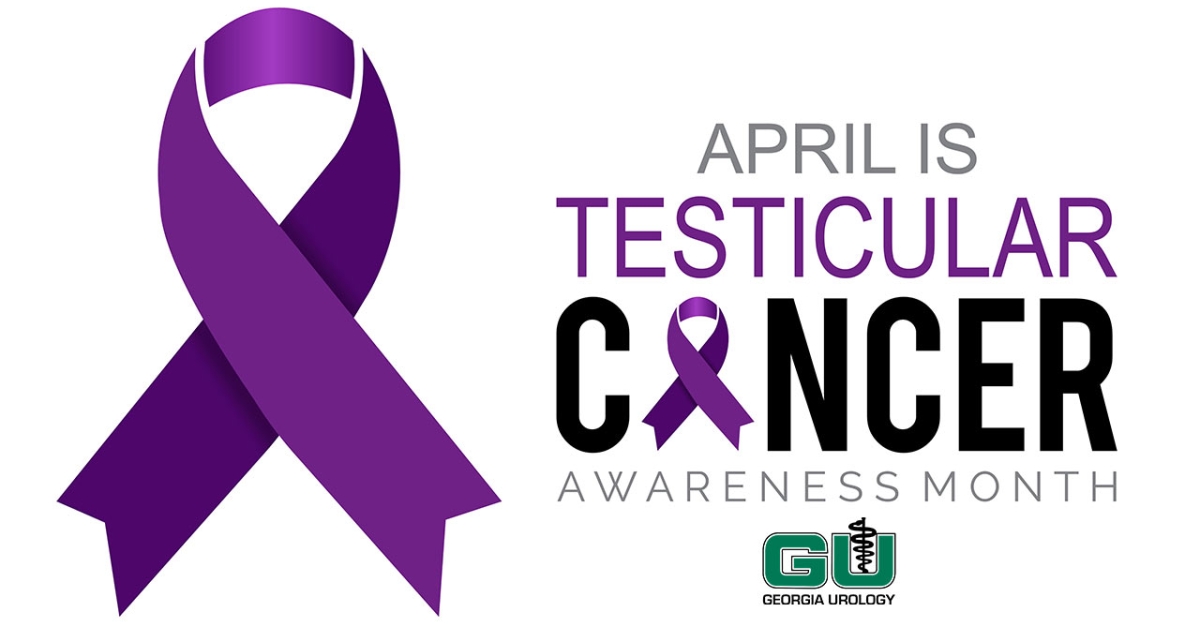The Importance of Timely Testicular Screening
It’s Testicular Cancer Awareness Month, and the urologists at Georgia Urology are offering advice on self-screening and early detection. No matter how old you are or what time of year it is, it’s important that you understand testicular screening, as it is an easy, fast way to detect testicular cancer at its earliest signs and get appropriate treatment.
Many people mistake testicular cancer as “an older person’s issue” or dismiss it due to a misunderstanding about its prevalence and effects. Meet Charlie, a young Georgia Urology patient who felt an unusual firmness in one of his testicles. Despite having no pain or discomfort, Charlie knew something wasn’t right. His awareness of testicular cancer and knowing that the signs and symptoms are not necessarily the same in every patient drove him to seek medical care, and he eventually was treated by the urologists here at Georgia Urology. Because of his quick assessment and immediate care, Charlie was diagnosed, seen, treated, and cancer-free soon thereafter.
Stories like Charlie’s show that testicular cancer can affect men of virtually any age and can be treated effectively and swiftly when caught early. Delaying a screening either because you “feel like nothing’s wrong” or because you are “too young” is a mistake that can lead to an outcome otherwise preventable.
How to screen yourself for testicular cancer
Unlike many other cancers, testicular self-screening is easy and effective. Most men take the opportunity to screen for testicular cancer in the shower and should do so once a month.
Important note: Speak to your primary care physician or urologist if you have a family history of testicular cancer or if you have had cancer yourself, especially if you have had radiation in the groin area.
How to self-screen
- Take a look in the mirror and see if you have any scrotal swelling
- Use both hands to grasp a testicle between your thumb (above) and index and middle fingers (below)
- Gently roll the testicle to see if you can feel any bumps. Your testicle should feel very smooth.
- Note: one testicle may be larger than the other. Further, the soft tube-like structure at the rear of the testicle is the epididymis – all normal.
- What to look out for:
- Bumps and lumps. Upwards of Ninety percent of testicular cancers develop into lumps. While lumps are a common sign of testicular cancer, they can also indicate other issues and need to be seen by a urologist immediately.
- If you have been experiencing pain in the testes, see your urologist as soon as possible. While it may not be cancer, you want a men’s health specialist to check it out and treat it if necessary.
- Hardness: If you feel that one testicle is harder than the other, this is a good reason to see your urologist
We stress that patients should go with their gut about whether a testicular issue needs medical attention. Knowledge of our bodies and when something feels “off” is usually the strongest indicator for further evaluation. Trust your intuition, and don’t put off seeing a specialist.
Testicular cancer survival
Testicular cancer is very treatable when it has not spread beyond the testes. Once it begins to spread (metastasis), testicular cancer can affect structures beyond the testes, including the lungs and, in advanced cases, the bones. When caught early, testicular cancer has over a 95% five-year survival rate. With successful treatment being so straightforward, don’t delay getting diagnosed.
Your Action Plan
- Make a point of performing a testicular cancer self-screening this week. Follow up with periodic self-checks.
- If you feel any testicular pain or a lump in your testicle, make an appointment with your urologist.
- Speak to your urologist about periodic medical exams, regardless of self-exams, especially if you have a higher risk for cancer. Use Testicular Cancer Awareness Month as the perfect reminder to get in for a checkup.
Why Georgia Urology?
When time is of the utmost importance, trust a medical practice with the resources and knowledge to address the problem and an experienced team to treat it promptly. With locations throughout Atlanta, seeing and treating patients quickly has become our hallmark of care and a cornerstone of our patient results.


